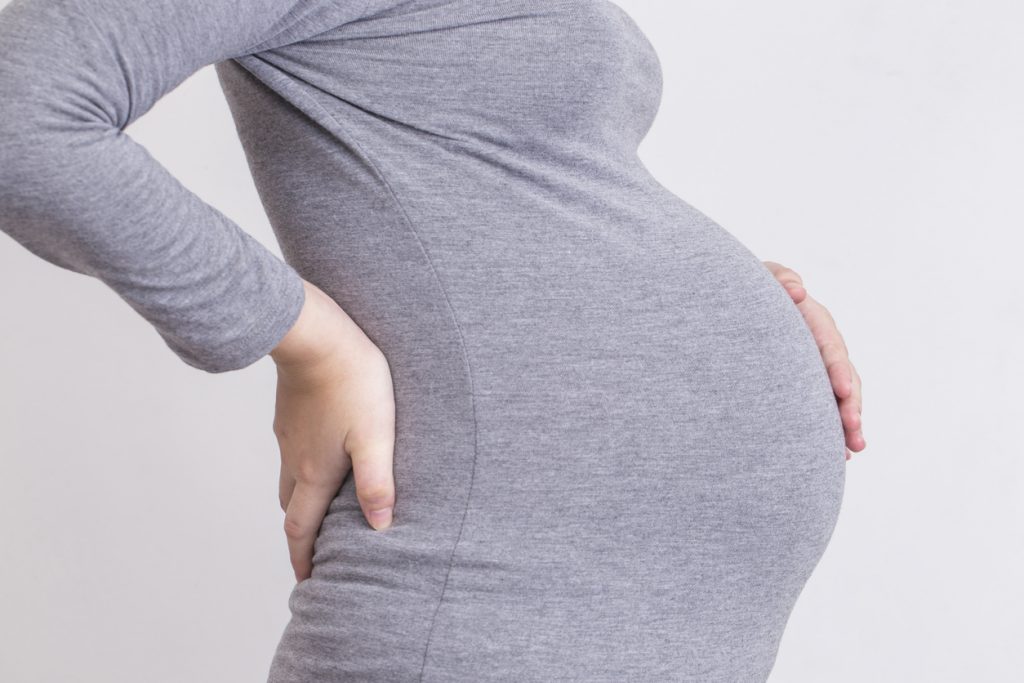 Experiences of food allergy during pregnancy are as unique as the women themselves. When women of childbearing age have one or more food allergies, a number of questions often come up for them. Three common questions include:
Experiences of food allergy during pregnancy are as unique as the women themselves. When women of childbearing age have one or more food allergies, a number of questions often come up for them. Three common questions include:
- How to manage food allergies during pregnancy
- Whether their condition is likely to improve, worsen, or remain the same during and after pregnancy
- Whether or not their children might develop allergies
There are no perfect or definitive answers to these questions, and every woman’s experience managing food allergies during and after pregnancy is different. We spoke with two women in the Montreal area about what it was like to be pregnant with food allergies, and what happened after the births.
Jennifer’s story
When Jennifer Michelin Berzan became pregnant, she did all she could to avoid accidental exposure to her food allergen, peanut. Nevertheless, she had what she describes as “a near-exposure” to peanut. Because of early contractions, the medication Prometrium was prescribed for Berzan. [Editor’s note: Prometrium is progesterone and it decreases the risk of premature labour.] It was only when she did a Google search at the pharmacy while filling the prescription that she noticed that it contained peanut oil. As a result, she did not take the medication.
As she describes it now, “the experience taught me to never let my guard down.” Fortunately, Berzan did not experience any allergic reactions during her pregnancy. Her two sons, now aged five and eight, have no known allergies, though her eldest did have a false-positive test to tree nuts, leading to the need for an oral challenge with his allergist. “It was very hard for me emotionally to introduce them each to peanuts and it took a long time to finally do it. They are now old enough to understand the allergy and food restrictions I have, and always try to look out for me.” Berzan also notes that during and after her pregnancies, the severity of her peanut allergy seemed to remain the same. Her allergist performed repeat skin testing for peanut a few years ago, and she experienced immediate skin symptoms.
Ayleen’s story
Parent and registered nurse Ayleen Gelbart manages allergies to shellfish, kiwi, lychee, mango, and pineapple, as well as several medications and radiocontrast dyes. She also has seasonal allergies, and a number of food intolerances. However, Gelbart’s only allergies prior to pregnancy had been to the shellfish and contrast dyes. As she describes it, most of her allergies emerged during and after pregnancy, when she was in her early 30s. “I am actually struggling more now than when I was pregnant.”
During her third pregnancy, she experienced an anaphylactic reaction to Ranitidine, a medication used for heartburn symptoms, and was treated at an emergency department. They saw her right away, administered intravenous Benadryl® and Prednisone, and monitored her closely. Because Gelbart was in her third trimester, the emergency department doctors decided not to administer epinephrine. After her allergic reaction, she continued to take Benadryl® every 4-6 hours for a week. [Editor’s note: It’s important to note that since epinephrine is classed as a drug to be used with caution in pregnancy, this is a clinical judgment call guided by the severity of a patient’s condition and the balance of risk vs. benefit to the fetus and the mother.]
In contrast to Berzan, whose sons did not develop allergies, Gelbart’s three daughters have allergies of some kind. Her daughter, Emma (13) has allergies to cats and dogs, as well as seasonal allergies. Morgan (10) has severe allergies to cephalosporins, penicillin, and mangoes, as well as seasonal and cat allergies. Finally, Sawyar (8) has seasonal allergies like her older sisters, is allergic to cherries and cats, and is severely allergic to quinoa.
Final thoughts
These are two stories amongst many, and while they can’t be generalized to other pregnant women, they do highlight what is ultimately most important – that is, carefully managing food allergies during pregnancy under the care of an obstetrician and an allergist.
Finally, when it comes to the question of heritability, these stories also underscore the fact that individual differences are key. While genetics likely play a significant role in food allergy development, with a higher risk if one or both parents are allergic, not everyone born to a parent (or parents) with food allergies will develop them. That neither of Berzan’s sons have food allergies and all of Gelbart’s daughters have allergies of some kind illustrates the complexity of food allergy development, as many factors influence whether a child will develop one or more allergies.
Ongoing and future research into food allergy promises to unlock more about the reasons why certain people develop allergies and others do not, and to answer other questions on the minds of women of childbearing age who manage food allergies in their daily lives.
For more information about food allergies, see our Fact Sheet. For some practical tips on managing allergies in pregnancy, visit the ACAAI web site. Please also check out the new guidelines for the introduction of peanut to babies as they provide specific advice for when to introduce peanut-containing foods to babies and how to do so.
Tags: pregnancy and food allergy
